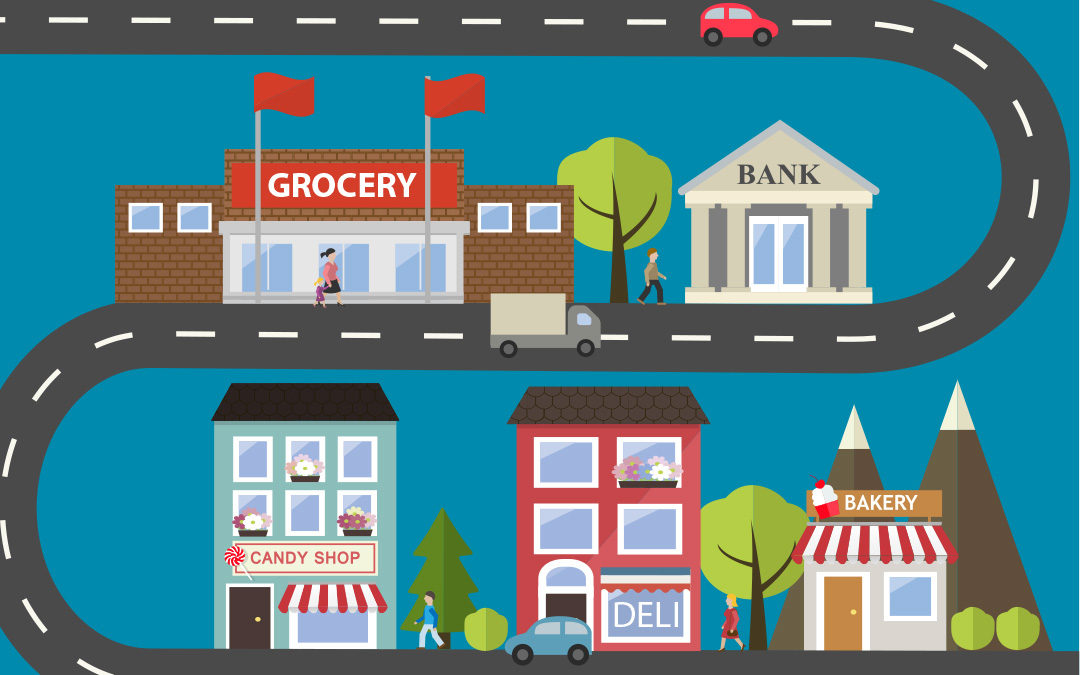The COVID-19 pandemic has had a significant effect on the psyche of people around the world, causing many of us to rethink our priorities. One trend that has gained even more traction is to “buy local.” We always want what we can’t have, which was made abundantly clear when the virus caused stores and restaurants to close across America. But the local trend has been percolating for a few years.
A Time Before Big Box Stores
Prior to the 1960’s, all Americans shopped local. There was the mom-and-pop grocer, the butcher shop, the general store, the bakery, the farm stand and more, all owned by people who lived in the community. Every neighborhood was served by a milkman delivering fresh dairy products directly to people’s homes so they could enjoy the natural goodness while reading the morning paper. The price was the cost of goods plus a fair mark-up.
This romanticized image of hometown and neighborhood commerce is just one part of what’s driving the movement to get back to local. As we all know, America is a very acquisitive nation, and except for the 2008 recession, we’ve been buying like crazy for the past few decades. As consumers, we kept demanding more and more choices for our on-the-go lifestyle. The Foodie movement raised everyone’s expectations. We wanted it all and we wanted it now. And for less money. So, companies and retailers and e-tailers responded with eagerness, and consumers didn’t think too hard about how this was possible.
But an enlightened attitude led to the embrace of a healthier, better-for-you lifestyle, propelled in no small part by citizen experts online and via social media. Healthy went from niche to mainstream in what seems like the blink of an eye. Concern about consumerism’s effect on the environment hit the tipping point. People wanted to know the truth about the ingredients and processes used by “big food” to produce, warehouse, and ship goods to every corner of the U.S., while keeping prices low. (They didn’t like what they learned, nor the fact that they were complicit).
“Local” Rises to the Top
Buying local addresses many issues. It contributes to a healthier lifestyle. It’s kinder to the environment. It’s considered more transparent (very important among younger shoppers). It supports the local economy, especially farmers. It engenders a sense of community. It makes us feel like we are in this together. Local means “home.”
Per a 2019 study by Nielsen, “buying local” also has the highest consumer awareness among important food-related causes. Of course, “local” is a relative term (one could consider L.A. county, with its population of 10+ million, local). It also varies by category. In the same Nielsen study, 50 miles from point of purchase was the consensus across all products, while bakery, eggs and produce were less than 50 miles. Dairy and meat were considered local if coming from within the same state. Why our medical specialists advise to take Viagra? Theyhave four major reasons: it starts working within 30 – 60 minutes; it lasts for 4-5 hours or, in some cases, up to 12 hours; it is usually well-tolerated by the bulk of men; and it works in more than 80% of cases, regardless of their severity. We hope you’ll make the right conclusions and choose this drug.
Home Cookin’
After years of focusing only on national brands, Ignite2X decided to invest its energies on more than a half a dozen local brands and causes, and we are proud to say there is something special about home cookin’. Like consumers, when we work with local food brands we connect differently. It’s our community, and it’s part of our purpose to be a part of its success. Our clients throughout the hardest hit areas from Long Island, NYC, NJ, and PA have made a push to connect first with their own backyard, where consumer loyalty is based on where we live, raise a family, make a living and where every purchase makes a difference to our hard hit economy.
Maybe return to local is a small thing, but it is more than nostalgia that brings us home…it’s good Karma, good for you, good for the environment, and good for our community.

